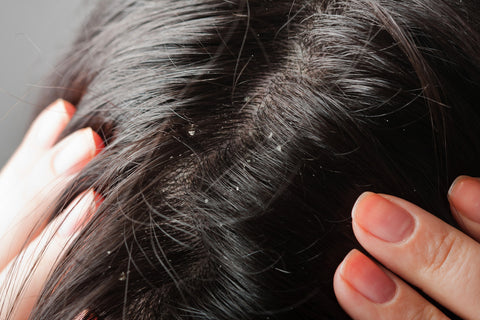Sometimes, you can’t beat a shower or a bath at the end of the day to wash your troubles away and destress. However, when we do this, many of us are often guilty of sleeping with wet hair. We’re relaxed, we’re sleepy, it’s convenient, and it’s harmless, right? In fact, this seemingly innocent habit isn’t as harmless as we might think. Indeed, turning in with wet hair can have some very adverse effects on our hair health and our overall well-being. Here’s why it’s best to avoid the habit, and what to do if you can’t give up an evening soak.
Hair Health Damage
It has been known for many years that when hair is wet, it’s at its weakest! Hair is composed of proteins known as keratins that bond together, giving the hair its strength. When wet, those pesky H2O molecules sneak in between those bonds, weakening our hair proteins ties to each other. It’s one of the reasons hair can be curled more easily when wet, but it also makes our locks much easier to damage. By going to bed with wet hair, when we toss and turn through the night, we’re stretching and crunching our tresses. Friction leads to pulling, tangles and knots, and this weakens the strands, sometimes to breaking point. Over time, this process can cause split ends and of course, hair loss.
Scalp Problems

When you go to bed with wet hair, you’re not only harming your locks, but you’re causing scalp issues too. Bacteria and fungi thrive in moist environments, and that includes your hair! Damp tresses are a perfect breeding ground for them, and our old friend dandruff loves a bit of moisture too. Taken together, you’re creating the perfect conditions for all manner of scalp conditions. At best, these problems can be itchy, irritating as well as unsightly. It’s not good for our self-esteem either. A scalp in poor condition also directly affects the hair follicles it nourishes and protects. When scalp issues are left unchecked, eventually this leads to hair damage, hair thinning and fall.
General Health Issues
Your grandparents might have told you sleeping (or going outside) with wet hair could make you catch a cold. There’s absolutely no scientific evidence for that, but it can give rise to other general health issues. A study in 2015 revealed that a damp scalp keeps the head cooler than usual, which can disrupt the process of the body entering sleep. The lighter, less settled sleep that results can cause tiredness and headaches. Also, when we sleep with wet hair, the moisture can penetrate deep inside your pillow, creating another great place for fungi and bacteria to grow. Over time, these can trigger respiratory conditions and allergies.
Bad Hair Days
Sleeping with wet hair can present serious hair styling challenges the next morning! Wet hair will dry in all manner of strange shapes, and trying to style or manage it can be a hell of a job. Chances are you’ll either have to accept a bad hair day (leaving you frustrated and grumpy), or you’ll use heat styling tools and strong products in an attempt to correct the situation. As we all know, regular use of heat styling tools can spell big trouble for our locks, especially for those of us with thin hair and hair fall.
Best Bedtime Hair Care Practices
To look after your hair and scalp, and prevent possible hair thinning or loss, it’s best not to sleep with wet hair. If you can’t give up a relaxing shower or bath before you hit the hay, then here’s what you need to do.
Air DryIf you can make the time, let your hair dry naturally. It won’t damage your locks and will allow them to reshape naturally. To speed things up, sit in a cool, dry place or switch on a fan (keep at a distance) and let the circulation of the air do the job.
Towel DryingGently pat your hair with a soft, absorbent towel to remove excess moisture and speed the drying process. Do not rub your hair vigorously, all that friction does is encourage unsightly frizz and of course, breakage.
Use a HairdryerIf you must use a hairdryer, then turn the heat dial to cool. And hold the dryer at least 6-8 inches away from your head to minimise heat damage and hair loss.
Detangle With a Wide-Tooth CombUse a Hair Gain wide-tooth comb to effortlessly remove knots and detangle wet hair. Take your time and take a section-by-section approach. Detangle the ends first, then work through the middle. Finally, slowly move the comb from the roots to the tips.
Pillow talkInvest in silk or satin pillowcase. These gentle, smooth materials keep friction to a minimum and help prevent hair damage and breakage. And make sure pillowcases are washed regularly to avoid the build up of gunk and microbial nasties!
Final Thoughts

By following this advice, you’ll be helping to keep your hair healthy and strong. Remember, it’s vital to take care of your hair through the day as well as at night. By embracing a proper hair care routine is a significant step towards having the hair we all desire. Taking two Hair Gain Capsules or Gummies a day will help stimulate thicker and fuller hair at the root. Meanwhile, our Hair Mask and Scalp Foam will give your scalp the hydration and nourishment it needs to reach tip top condition.
